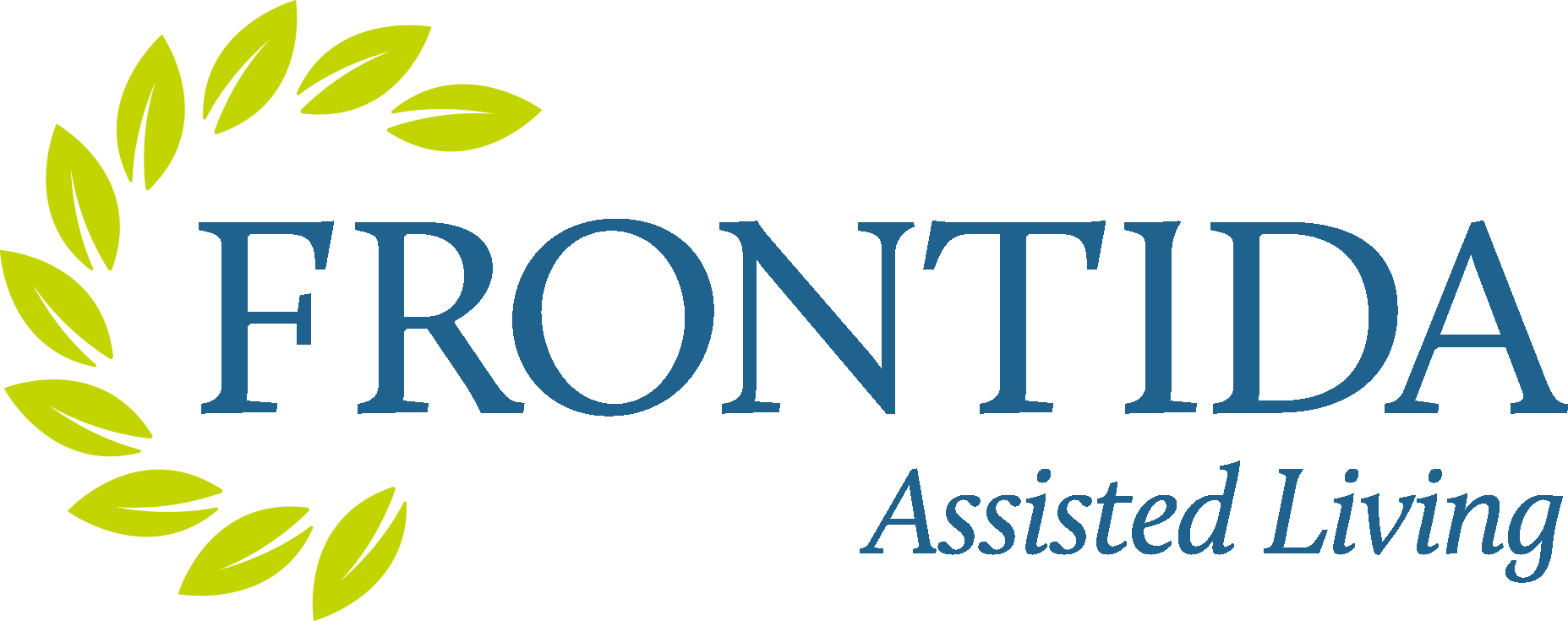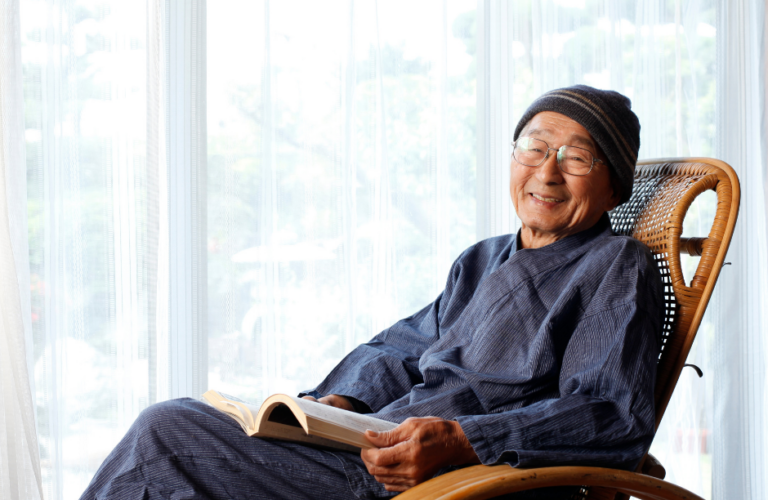Watching your parents grow older can feel like you’re losing a bit of yourself—your past, present, and future.
You need all the support you can get.
Thankfully, you’re not the only one on this road. Others who have walked before you have shared what they’ve learned as doctors, nurses, loved ones….
And they’ve published their thoughts.
Check out these four books that might be just what you’re needing right now to get you through the day.
Frontida Senior Living Communities, including Germantown Assisted Living Facility, provide you with posts like this one to help you live your best life.

For Dementia
With Answers to Anything You Could Have Thought to Ask—and a Whole Lot More.
Alzheimer’s and other forms of dementia can be one confusing mess. And just when you get a handle on what’s going down, it’s all up in the air again, right?
Nancy L. Mace and Peter V. Rabins get it.
Their book The 36-Hour Day gives you a comprehensive “Family Guide to Caring for People Who Have Alzheimer’s Disease, Related Dementias, and Memory Loss.”
And comprehensive means
- 11 pages for the Table of Contents
- 576 pages of information
- 21 pages of indexed issues you’re probably struggling with right now
Not to mention seven pages of organizations and agencies that are out there to help.
This jam-packed resource contains info like causes and characteristic behaviors of Alzheimer’s and how to get someone evaluated, every-day daily care and problems that can start, mood changes, medical problems, …
And how all of it can affect you and your health.
So if someone you love has Alzheimer’s or some other form of dementia, this book is a must. It doesn’t pull any punches, but it tells it to you straight.
And helps you know you’re not going crazy.
For Growing Older in General
Everyone Does It, But Society Likes to Pretend It Isn’t So.
Google “60 is the new 40,” and you’ll get about 9,270,000,000 results. Plus the ones that say that first number should be 70. (And if those commas have you squinting, that’s 9.27 billion.)
Our society is obsessed with being younger.
But surgeon Atul Gawande, MD, MPH, says that while reverence for elders may be gone, it isn’t because it’s been swapped for reverence of youth.
Instead what we worship is independence.
The fear of not being able to go where we want when we want how we want to do what we want and then to go to a home where we control the remote.
So what happens when we can’t do that anymore?
That’s what Gawande’s book Being Mortal is all about.
In his words, “this is a book about the modern experience of mortality—what it’s like to be creatures who age and die, how medicine has changed the experience and how it hasn’t, where our ideas about how to deal with our finitude have got the reality wrong.”
In other words, the book’s subtitle: “Medicine and What Matters in the End.”
While The 36-Hour Day gives specifics of care, Being Mortal is a review of how society and medicine got us where we are. What needs to be changed. And what’s so much better for the elderly now than it was thirty years ago.
- It talks about the development of today’s assisted living facilities—and how they aren’t your great-grandma’s nursing home from the dark ages. (i.e. the ones from the 80’s.)
- But it also talks about how our constant fight for independence can hurt us in the long run.
- It questions what type of doctors we should be running to in our last years and how to choose a good home.
- And it explains the number one medical issue that’s more dangerous than all the others: falling.
In other words, Being Mortal is a memoir of history lessons that could change your parents’ quality of life.
For Your Heart
Because When It Comes to Your Parents, There’s Always a Bit of Your Still Being Their Little Boy or Girl.
We can read the how’s and why’s and what now’s. Those are important.
But sometimes we just need to marinade in the emotions.
And Cynthia Ruchti’s As My Parents Age allows you to do just that. It’s a book of “Reflections on Life, Love, and Change.”
And it’s beautiful.
It gives you emotional truth to cling to because “knowing that you are not alone, that others have been where you are, is encouraging and uplifting.”
With chapter titles like
- When I Notice the First Signs,
- When They’re Miles and Miles Away,
- When We Mourn and Embrace the Role Reversal,
- When My Children Need Me Too,
- and When My Parents Won’t Accept Help,
you know the stories will be relevant.
It only took me fourteen pages to want to cry. (Okay, it was probably by page two, but this quote is on p. 14.) “My precious mother, a rock of stability with a little stubborn mixed in, helpless and frightened and desperate for something she couldn’t define.”
Have you been there? Watching that?
It proves what Ruchti says about her book:
“This is not a how-to, but a me-too, as you see yourself and your own situation lived out in the stories of others.”
As you watch your parents’ age, her words will be a balm to your weary soul.
For Your Prayers
When We Realize We Aren’t in Control.
Life can be a total roller coaster—from season to season, day to day, even hour to hour—especially with elderly parents. We make plans, set up contingencies, even consider plans D, E, and F. But it doesn’t take long before we come to the conclusion that we can’t rule the future, much less the present.
If you’re like me, that’s when you’re thankful there’s prayer.
And Chelsea Stanley’s booklet, 5 Things to Pray for Your Parents: Prayers that Change Things for an Older Generation, helps you think through how to do just that. Suffering, life transitions, relationships… There are even prayers specifically about dementia, based on Psalm 102.
If you believe in the power of praying, this book will give those prayers direction.
Worth the Time to Read
I know. Your time is swallowed up in doctors’ appointments and insurance calls and meal prep that requires all kinds of different ingredients, with none of the items that you find easily. And when you finally sit down and prop your feet up, you can barely keep your eyes open, let alone process a book.
That’s okay.
These books don’t have to be cover-to-cover, read-in-one-sitting books.
They’re perfect for those times where you’re waiting for the doctor to come in, listening to the insurance company’s elevator music on the other line, or watching the internet icon spin as it tries to load that new recipe.
- 36 Hour Day is that encyclopedia you grab when Mom’s struggling with something new.
- Being Mortal helps you think through the big picture. Plotting the end game.
- As My Parents Age? It’s the Cappuccino with extra cream in a big ol’ mug—and, yes, here and there a good cry.
- And 5 Things to Pray for Your Parents gives you the strength you need to keep going another day.
These books won’t take time away from what you need to be doing. They’ll help you get it done!
Have you found other books that have been helpful as your parents grow older? Tell us about it on Facebook.
If you’re realizing you need more support, Frontida can help. Safe living starts here.
For more help, check out these other posts on support for caregivers.

Elizabeth Daghfal is a writer, teacher, speaker, and community volunteer. When she isn't teaching or writing-- Who are we kidding? Her husband and five kids say she's ALWAYS teaching and writing. She has a passion to help people who are struggling and is happy to say her shoulders are drip-dry. Born and raised in the South, she now lives in Wisconsin and loves it--except for the fifteen months of winter. Read more about her at elizabethdaghfal.com.

